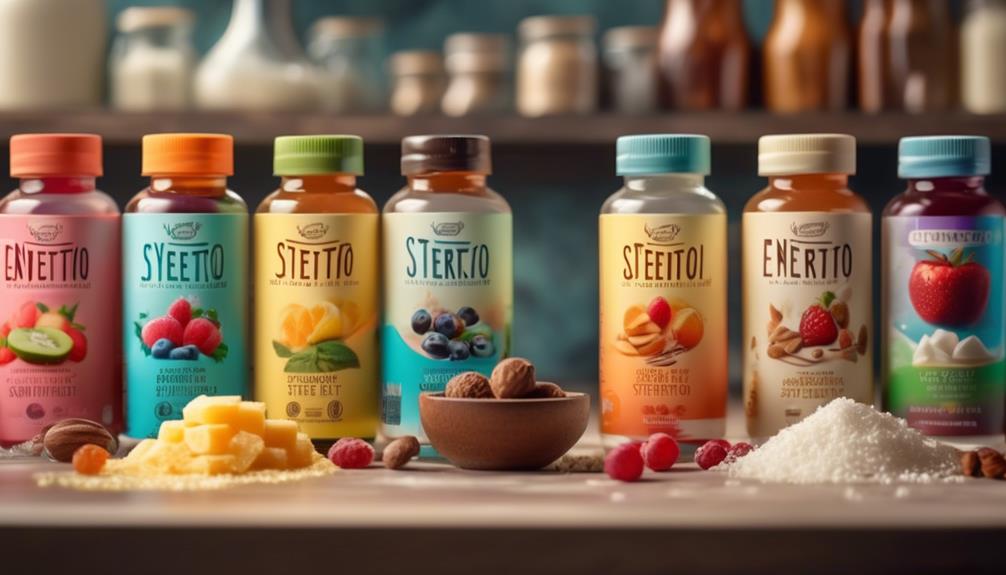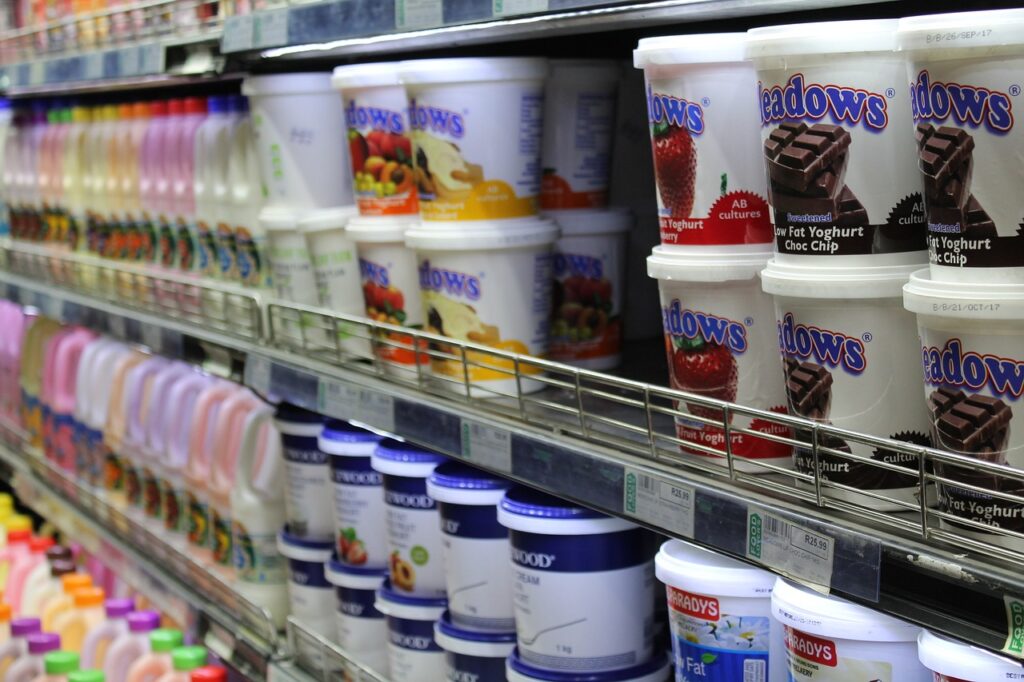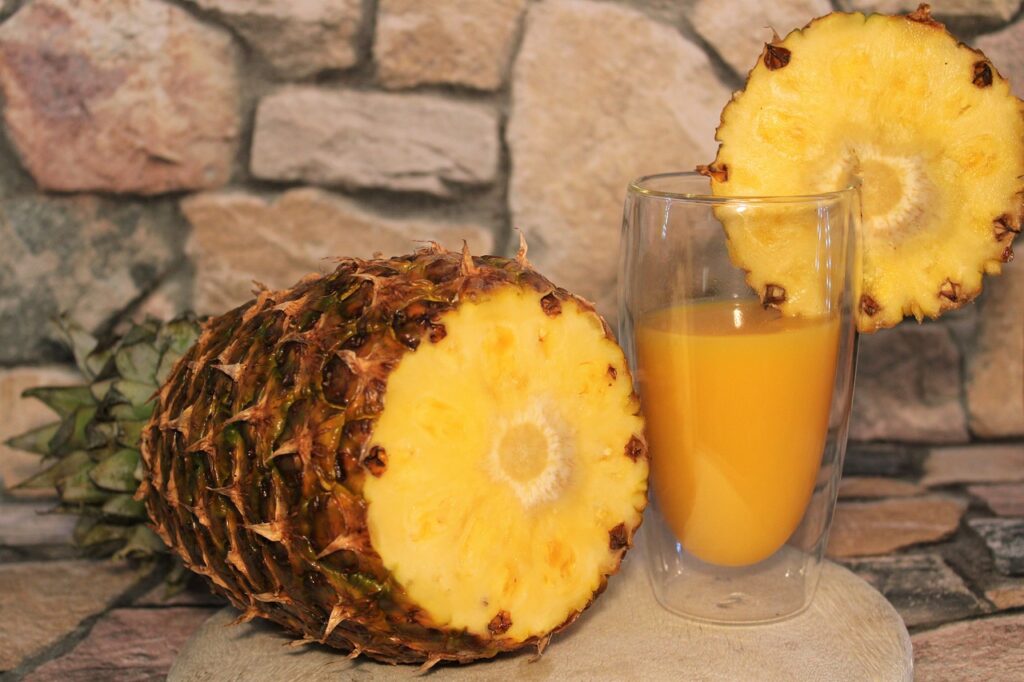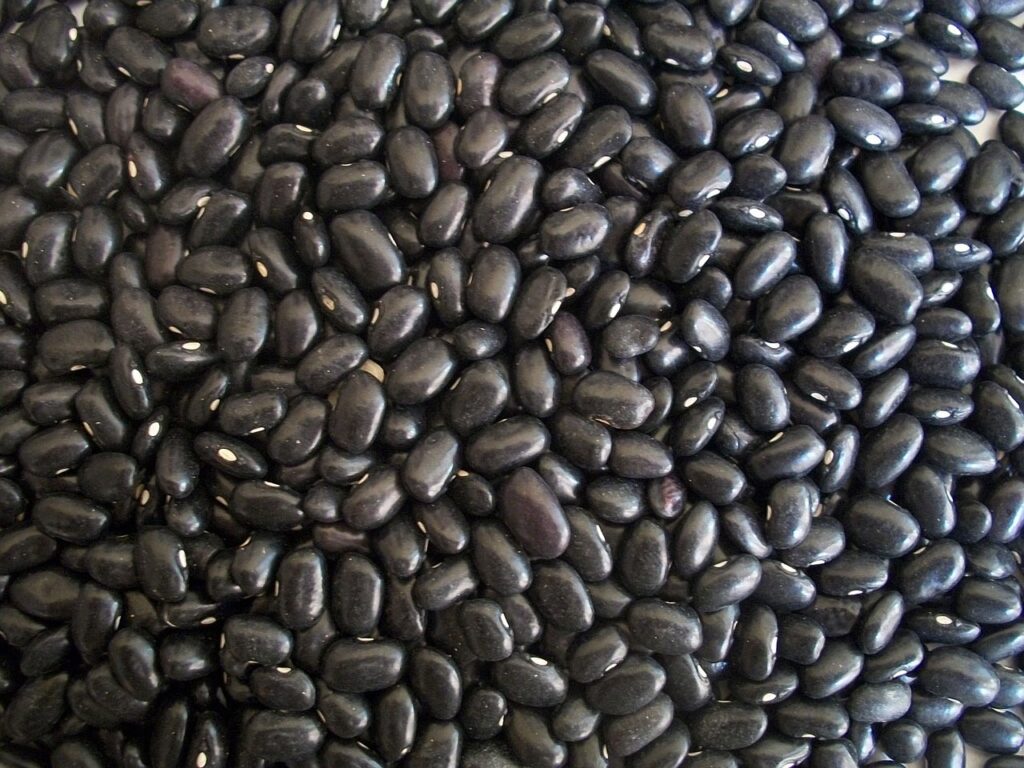If you've been on a dairy-free keto diet for a while, you know how challenging it can be to find suitable sweeteners that won't derail your progress. But fear not, because in this discussion, we're going to unveil the top low-carb sweeteners that will satisfy your sweet tooth without compromising your health goals.
From the natural and calorie-free stevia to the tooth-friendly erythritol and the fruit-derived monk fruit extract, these sweeteners offer a guilt-free way to indulge in sweetness.
But that's just the beginning. Stay tuned to discover more about these sweeteners and how they can revolutionize your dairy-free keto journey.
Stevia: A Natural, Zero-Calorie Sweetener

Stevia, a natural and zero-calorie sweetener derived from the leaves of the Stevia rebaudiana plant, is a suitable option for a dairy-free keto diet due to its high sweetness and lack of impact on blood sugar levels. This makes it an ideal choice for those following a low-carb lifestyle.
Stevia is 30-150 times sweeter than sugar, meaning you only need a small amount to achieve the same level of sweetness. This can be beneficial for individuals looking to reduce their sugar intake while still enjoying a sweet taste in their foods and beverages.
One of the main advantages of stevia is its zero-calorie content. This makes it a great alternative to sugar for those who are watching their calorie intake. Whether you're on a keto diet or simply trying to cut back on carbs, stevia can be a valuable addition to your pantry. It can be found in powdered and granulated forms, making it versatile for use in a variety of recipes.
It's important to note that while stevia is considered safe for consumption, individuals with diabetes should still monitor their blood sugar levels when incorporating stevia or any new sweetener into their diet. Additionally, it's essential to be mindful of any fillers that may be present in stevia products, as these fillers could contain carbohydrates.
Erythritol: Low Carb and Tooth-Friendly
Erythritol, a low-carb sweetener that has no impact on blood sugar levels or insulin response, is a tooth-friendly option for individuals following a dairy-free keto diet. This sugar alcohol doesn't cause tooth decay and is considered safe for dental health.
Here are some key points about erythritol:
- Tooth-friendly: Unlike sugar, erythritol doesn't feed the bacteria in your mouth that cause dental plaque and cavities. It doesn't promote tooth decay and is even recommended by dentists as a sugar substitute for those concerned about their dental health.
- Low-carb and keto-friendly: Erythritol is a suitable sweetener for those following a low-carb or keto diet. It contains zero net carbs and has a minimal impact on blood sugar levels, making it a great choice for individuals with diabetes or those looking to manage their blood sugar levels.
- Weight management: Erythritol has a low calorie content compared to sugar, making it a helpful tool for weight management. It provides sweetness without adding significant calories to your diet, which can be beneficial for those trying to lose weight or maintain a healthy weight.
- Dairy-free option: Erythritol is a great sweetener for individuals following a dairy-free diet. It can be used as a substitute for sugar in a variety of dairy-free recipes, allowing you to still enjoy sweet treats while avoiding dairy products.
Monk Fruit: A Fruit-Derived Sweetener
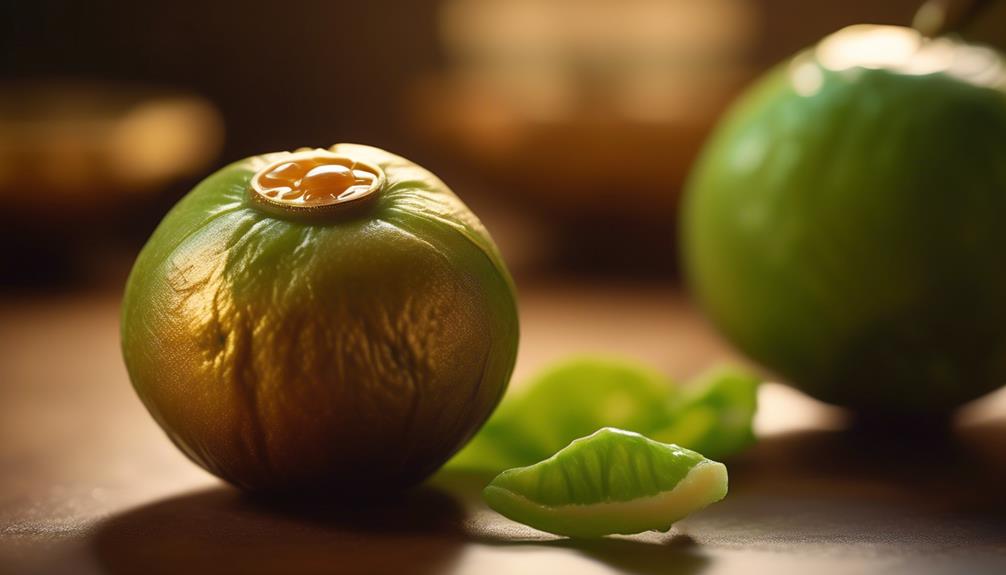
If you're looking for another fruit-derived sweetener to add to your dairy-free keto diet, consider monk fruit. Monk fruit is a sweetener that's derived from the monk fruit, also known as Luo Han Guo. It's known for its zero-calorie, zero-carb, and zero-glycemic impact, making it a popular choice for those following a low-carb and keto diet. This sweetener is rich in antioxidants called mogrosides, which give it its sweet taste.
In fact, monk fruit is 100-250 times sweeter than sugar, which means you only need a small amount to sweeten your foods and beverages.
One of the advantages of monk fruit as a sweetener is that it doesn't raise blood sugar or insulin levels, making it a suitable option for those with diabetes or those who want to maintain ketosis. It's also generally regarded as safe by the US FDA, although it isn't approved for sale in the European Union.
When choosing monk fruit as a sweetener, it's important to be mindful of its potency. Due to its high sweetness, a small amount can provide the desired level of sweetness. You can find monk fruit sweeteners in various forms such as liquid, powder, or granules, making it easy to incorporate into your dairy-free keto diet.
Allulose: a Rare Sugar With Minimal Calories
Allulose, a rare sugar with minimal calories, is an excellent sweetener choice for those following a dairy-free keto diet. It functions similarly to sugar but has minimal impact on blood sugar levels, making it ideal for those following a low-carb lifestyle.
Here are a few key points about allulose:
- Allulose can be used as a 1:1 substitute for sugar in recipes, making it convenient for those looking to reduce their sugar intake while still enjoying sweet treats.
- Unlike other sweeteners such as erythritol or stevia, allulose doesn't have a bitter aftertaste, which can sometimes be off-putting for some individuals.
- Allulose is derived from natural sources such as fruits like figs and raisins, as well as from sources like corn. However, it's important to note that the majority of allulose used in commercially available products is produced using non-GMO corn.
- Approved as a low-calorie sweetener, allulose is classified as a rare sugar and is a suitable alternative for those seeking a dairy-free keto sweetener.
- Allulose offers the sweet taste desired without impacting blood sugar or ketosis, making it a valuable addition to the keto pantry.
Swerve: A Blend of Erythritol and Oligosaccharides
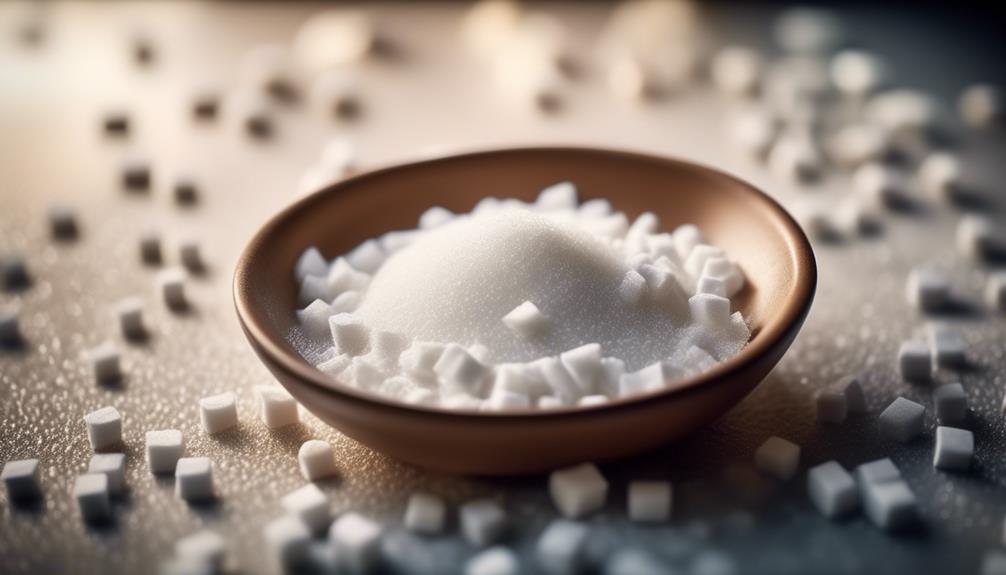
For those following a dairy-free keto diet, another low-carb sweetener option to consider is Swerve, which is a blend of erythritol and oligosaccharides. Swerve measures like sugar and has no impact on blood sugar levels, making it a suitable substitute for sugar in keto recipes. It's made from ingredients found in select fruits and starchy root vegetables, providing a naturally derived sweetening option.
The blend of erythritol and oligosaccharides in Swerve offers several benefits. Erythritol is a sugar alcohol that's low in calories and doesn't raise blood sugar levels. Oligosaccharides, on the other hand, act as prebiotics, supporting gut health and digestion.
Swerve is keto-approved and can be used as a 1:1 substitute for sugar in cooking and baking. It offers the sweetness of sugar without the negative impact on carbohydrate intake.
Xylitol: Low Carb and Good for Dental Health
Xylitol, a low-carb sweetener, offers dental benefits along with its sweetness. It has been shown to help prevent cavities and is commonly found in sugar-free gum.
While it's low in carbs, it's important to note that it's not zero carb.
Dental Benefits of Xylitol
Xylitol offers dental benefits by preventing cavities and dental decay, making it a valuable addition to a low-carb or keto diet. This low-carb sweetener has been shown to help promote oral health and is commonly found in sugar-free gum. Xylitol has a low glycemic index, which means it has minimal impact on blood sugar and insulin levels, making it suitable for those following low-carb diets.
However, it's important to consume xylitol in moderation as it does contain some carbs. It's also worth noting that xylitol may cause digestive issues when consumed in moderate to large amounts. Additionally, it's toxic for pets, so it should be kept away from them.
When looking for sweeteners for a dairy-free keto diet, xylitol can be a great option due to its dental benefits.
Xylitol as a Low-Carb Sweetener
With its proven dental benefits, xylitol emerges as a compelling choice for individuals seeking a low-carb sweetener that promotes oral health. Xylitol is a granulated low-carb sweetener that can be incorporated into a dairy-free keto diet. It offers a sweet taste without the high carbohydrate content found in traditional sweeteners. Xylitol has been widely used in sugar-free gum and other products due to its low glycemic index and its ability to help prevent cavities.
However, it's important to note that while xylitol is low in carbs, it isn't zero carb. It's also worth mentioning that consuming moderate to large amounts of xylitol may cause digestive issues. Additionally, it's toxic for pets, so caution should be exercised when using xylitol in households with animals.
Inulin: A Fiber-Based Sweetener for Keto Diets

Inulin offers several health benefits, making it a favorable sweetener for those following a dairy-free keto diet.
As a fiber-based sweetener, inulin can provide prebiotic benefits to support gut health.
Additionally, it has minimal impact on blood sugar levels, making it a suitable choice for maintaining ketosis.
Health Benefits of Inulin
Derived from chicory root, inulin offers a fiber-based sweetener option that can provide numerous health benefits for those following a dairy-free keto diet. Here are some key health benefits of inulin:
- Low impact on blood sugar: Inulin has a minimal effect on blood sugar levels, making it a suitable sweetener option for people with diabetes or those managing their carbohydrate intake on a keto diet.
- Digestive health support: Inulin acts as a prebiotic, promoting the growth of beneficial gut bacteria and supporting overall gut health. Studies have found that inulin-based sweeteners like chicory root fiber can have a positive impact on digestive health by improving bowel regularity and reducing constipation.
- Weight management: Inulin is a source of dietary fiber, which can contribute to feelings of fullness and aid in weight management. Research suggests that including inulin in the diet may help reduce calorie intake and support weight loss efforts.
Incorporating inulin-based sweeteners into a dairy-free keto lifestyle can provide a versatile and low-carb alternative for sweetening beverages and recipes while offering potential health benefits.
Inulin as a Sugar Substitute
Incorporating inulin as a sugar substitute in a dairy-free keto diet can provide a low-carb and fiber-based sweetener option. Inulin is derived from chicory root and is a suitable choice for those following a keto lifestyle.
Unlike traditional sweeteners, inulin has minimal impact on blood sugar levels, making it a favorable choice for maintaining ketosis. With only 1-2 net carbs per teaspoon, inulin-based sweeteners can add sweetness to your favorite keto recipes without causing a spike in blood sugar or insulin levels.
In addition to its low-carb properties, inulin also offers prebiotic benefits, promoting a healthy gut. So, if you're looking for a sugar substitute that won't interfere with your dairy-free keto diet, consider incorporating inulin-based sweeteners for a guilt-free indulgence.
Inulin and Blood Sugar Levels
To further explore the benefits of inulin as a sugar substitute in a dairy-free keto diet, let's now turn our attention to its impact on blood sugar levels. Inulin, being a fiber-based sweetener, has minimal impact on blood sugar levels. This makes it a suitable choice for those following a low-carb lifestyle.
Here are some key points to consider:
- Inulin is derived from chicory and is low in carbs, making it a popular sweetener for those on a keto diet.
- Inulin-based sweeteners, such as stevia, monk fruit, or erythritol, can be used as a substitute for sugar without significantly affecting blood glucose levels.
- The fiber content in inulin also promotes gut health and supports digestive function, making it a beneficial choice for those on a dairy-free keto diet.
When choosing sweeteners for a dairy-free keto diet, inulin can be a valuable option due to its minimal impact on blood sugar levels and potential digestive benefits.
Conclusion
In conclusion, when following a dairy-free keto diet, there are several low-carb sweeteners available that can satisfy sugar cravings without impacting blood sugar levels. Stevia, erythritol, and monk fruit extract are all safe and calorie-free options that can be used as substitutes for sugar in recipes.
Interestingly, monk fruit extract can be up to 250 times sweeter than sugar, providing a satisfying sweetness without the added carbohydrates. These sweeteners can help individuals maintain a keto lifestyle while still enjoying a touch of sweetness.

